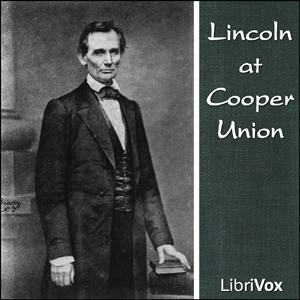- Excerpt from "Awful Disclosures of the Hotel Dieu Nunnery of Montreal"
- The Donation of Constantine
- Excerpts from "An historical and geographical description of Formosa"
- Excerpt from "Great astronomical discoveries"
- "The Hidden King" from "Famous Imposters"
- "Mesmer" from "Famous Impostors"
- An Architectural Monograph on a New England Village
- "The Songs of Selma" from "Poems of Ossian"
- "The 1,000,000 Postage Stamp Hoax" from "Frauds of America"
- Excerpts from "Sketch of the Mosquito Shore, including the territory of Poyais"
This collection showcases fabricated documents and stories throughout history, and the diversity of purposes and contexts they were deployed in.
The "Awful Disclosures of the Hotel Dieu Nunnery of Montreal" is a fabricated anti-Catholic eye-witness account, published in 1836 and purporting to reveal the horrors of life in a convent.
The Donation of Constantine is a forged imperial decree, supposedly enacting a perpetual transfer of authority over the western part of the Roman Empire from the emperor to the Pope.
George Psalmanazar, who passed himself off as a native of Formosa (Taiwan), wrote a fanciful book about the island, which made a splash in 18th-century London.
The Great Moon Hoax was a series of fantastical descriptions of the moon, published in the 1830s by the New York newspaper The Sun, and falsely attributed to the famous astronomer Sir John Herschel.
Bram Stoker tells the legend of Sebastian of Portugal, the "Hidden King", and the story of Franz Mesmer, the purveyor of "animal magnetism" from whose name the word "mesmerize" is derived.
"An Architectural Monograph on a New England Village" is a painstakingly documented and illustrated description of a village that never existed.
James Macpherson presented the Poems of Ossian as a traditional epic cycle translated from Scottish Gaelic, but modern scholars believe that he largely wrote the poems himself.
E. G. Redmond tells of a hoax involving postage stamps, the first of which was conceived by a stamp collector in Germany.
"Sketch of the Mosquito Shore" was a glowing but false account of the Central American coast, in which one could buy land from the author.
The "Awful Disclosures of the Hotel Dieu Nunnery of Montreal" is a fabricated anti-Catholic eye-witness account, published in 1836 and purporting to reveal the horrors of life in a convent.
The Donation of Constantine is a forged imperial decree, supposedly enacting a perpetual transfer of authority over the western part of the Roman Empire from the emperor to the Pope.
George Psalmanazar, who passed himself off as a native of Formosa (Taiwan), wrote a fanciful book about the island, which made a splash in 18th-century London.
The Great Moon Hoax was a series of fantastical descriptions of the moon, published in the 1830s by the New York newspaper The Sun, and falsely attributed to the famous astronomer Sir John Herschel.
Bram Stoker tells the legend of Sebastian of Portugal, the "Hidden King", and the story of Franz Mesmer, the purveyor of "animal magnetism" from whose name the word "mesmerize" is derived.
"An Architectural Monograph on a New England Village" is a painstakingly documented and illustrated description of a village that never existed.
James Macpherson presented the Poems of Ossian as a traditional epic cycle translated from Scottish Gaelic, but modern scholars believe that he largely wrote the poems himself.
E. G. Redmond tells of a hoax involving postage stamps, the first of which was conceived by a stamp collector in Germany.
"Sketch of the Mosquito Shore" was a glowing but false account of the Central American coast, in which one could buy land from the author.
There are no reviews for this eBook.
There are no comments for this eBook.
You must log in to post a comment.
Log in











